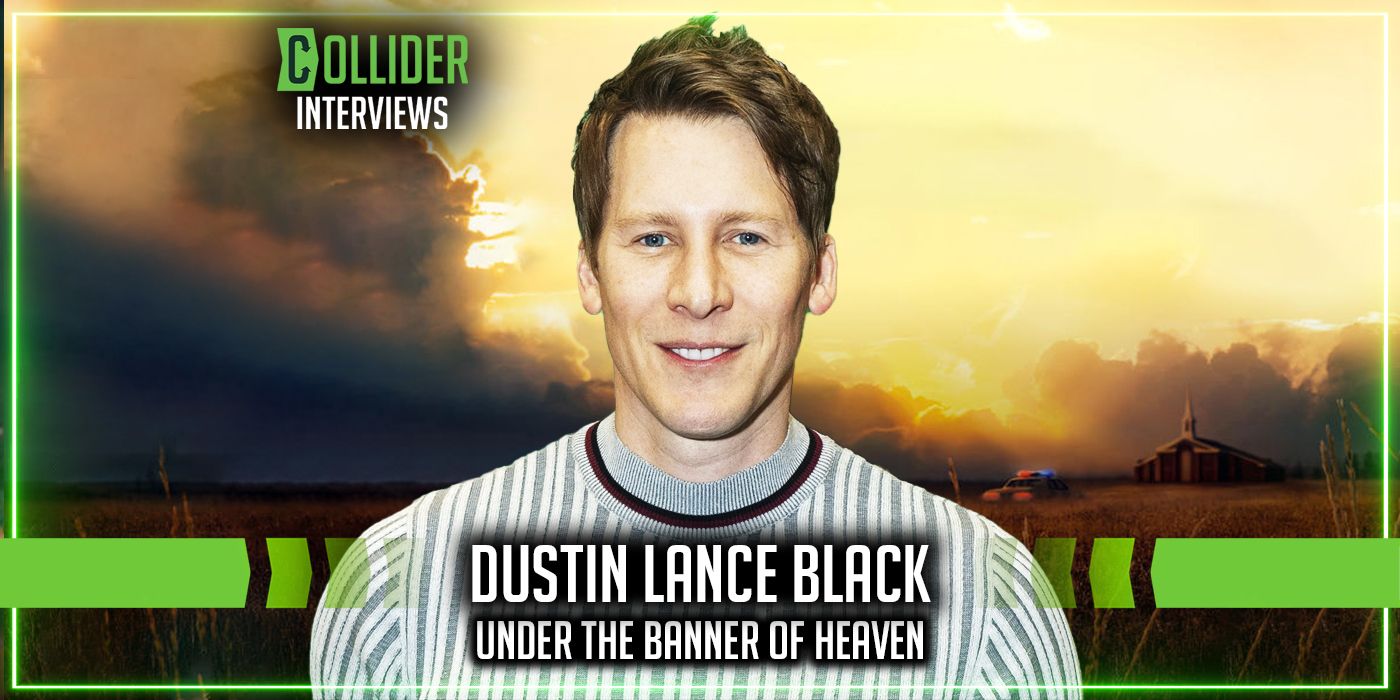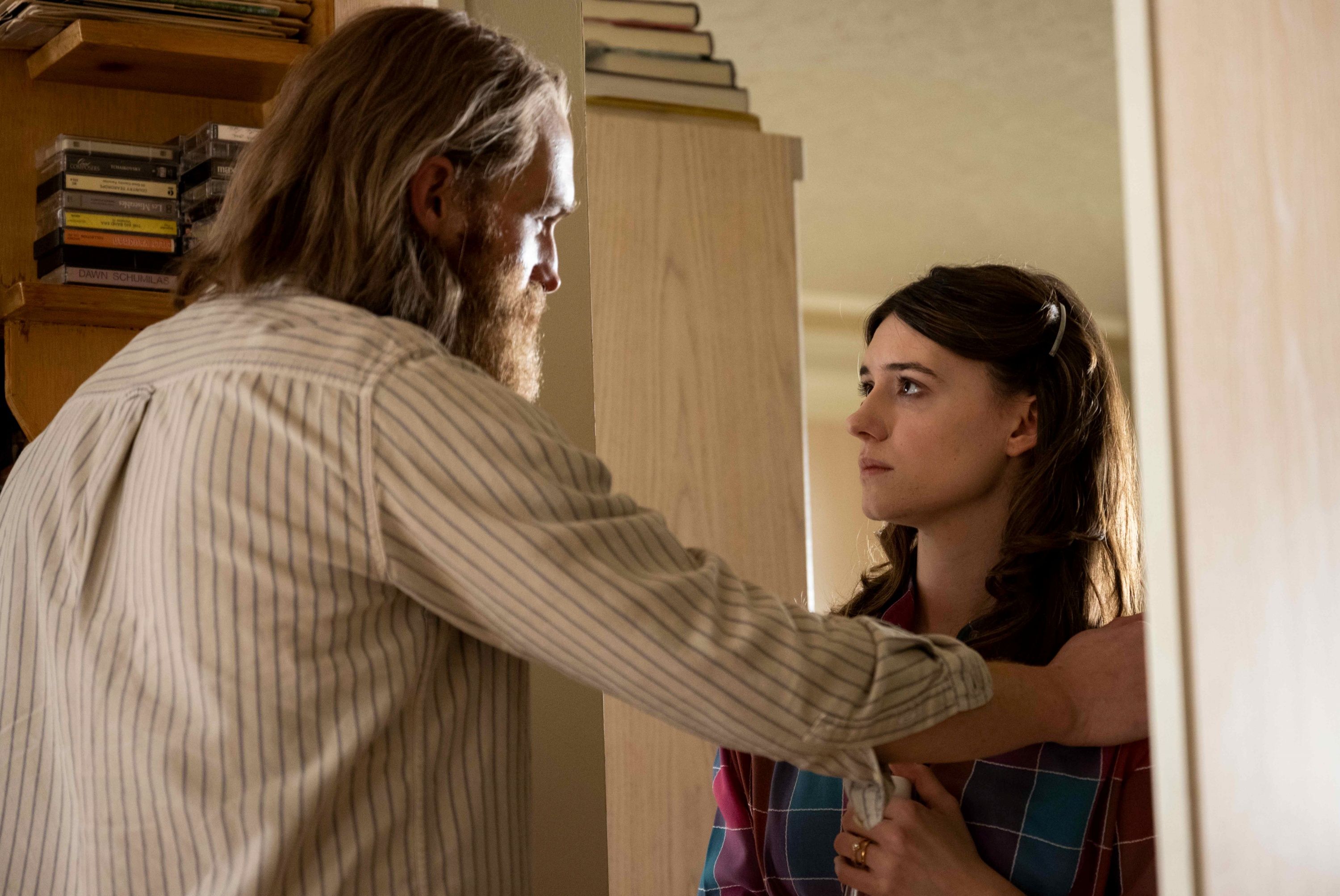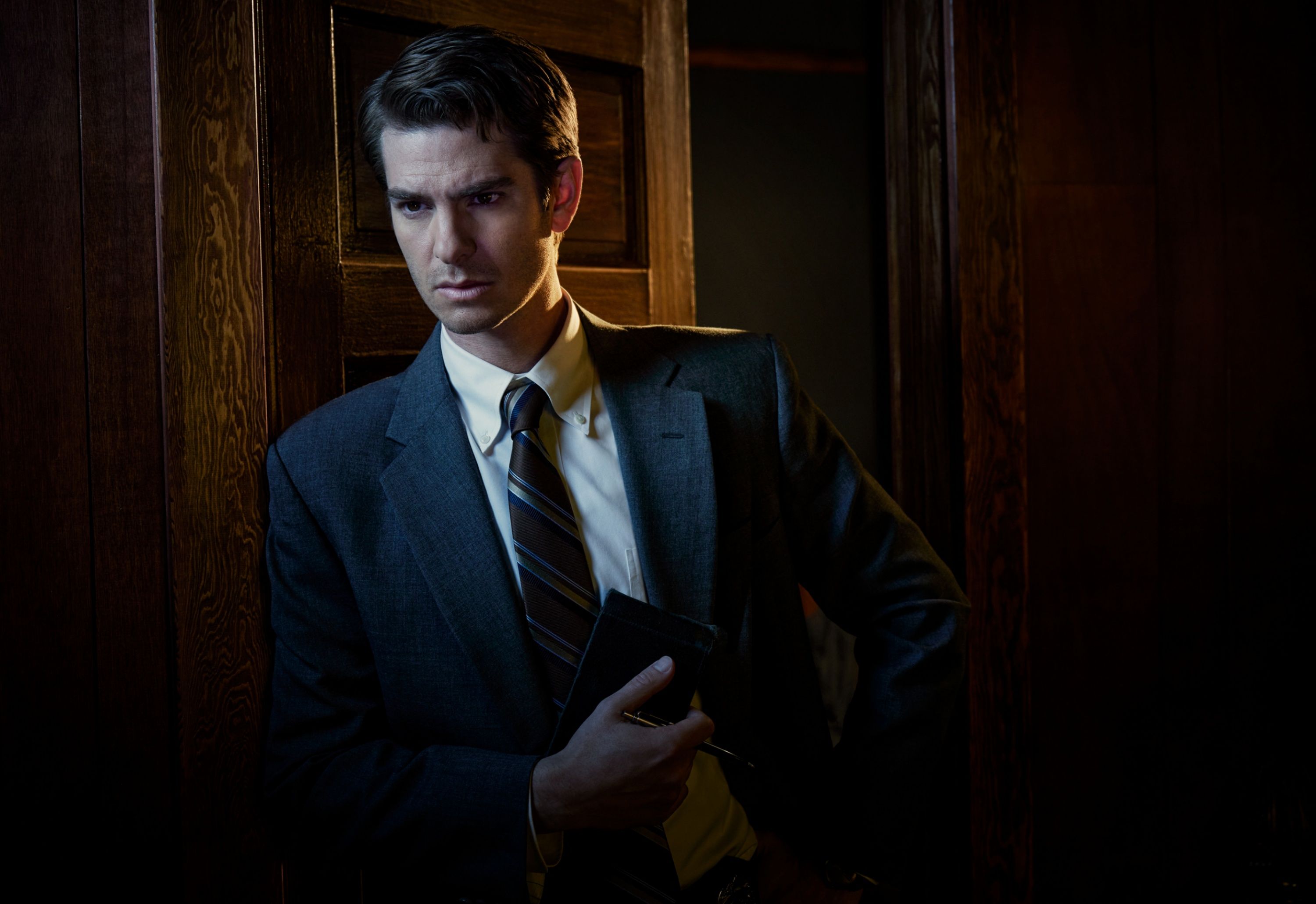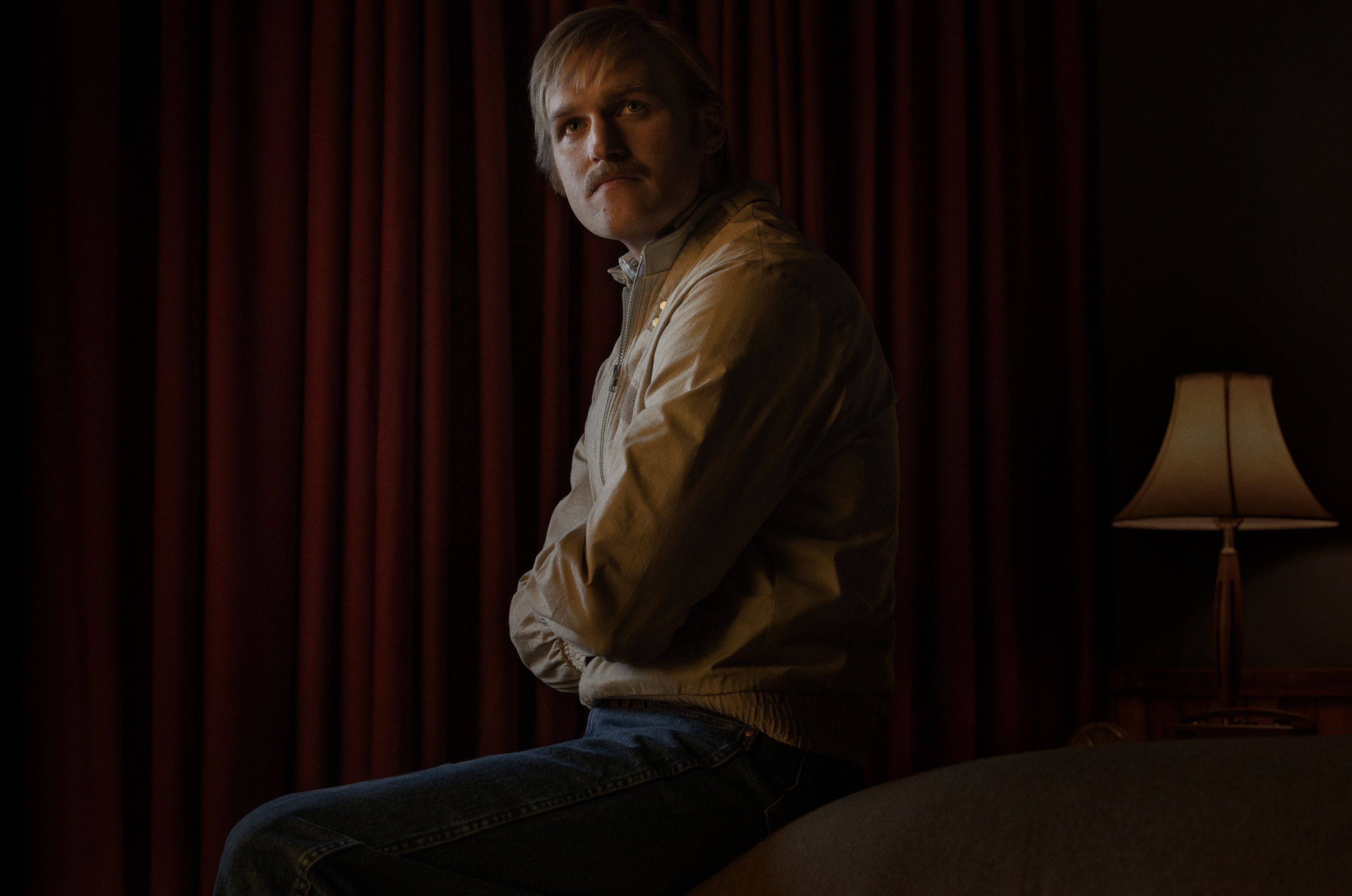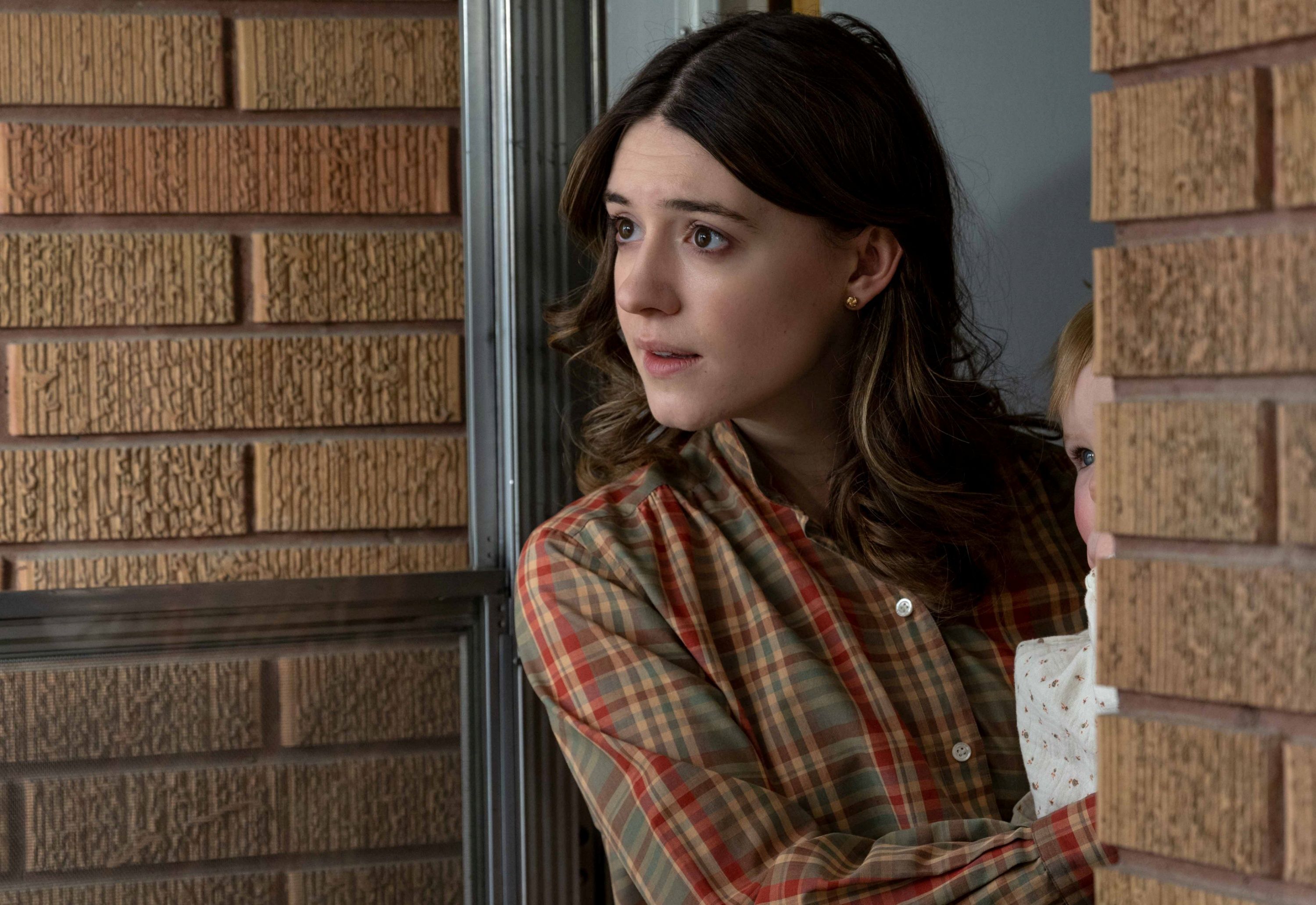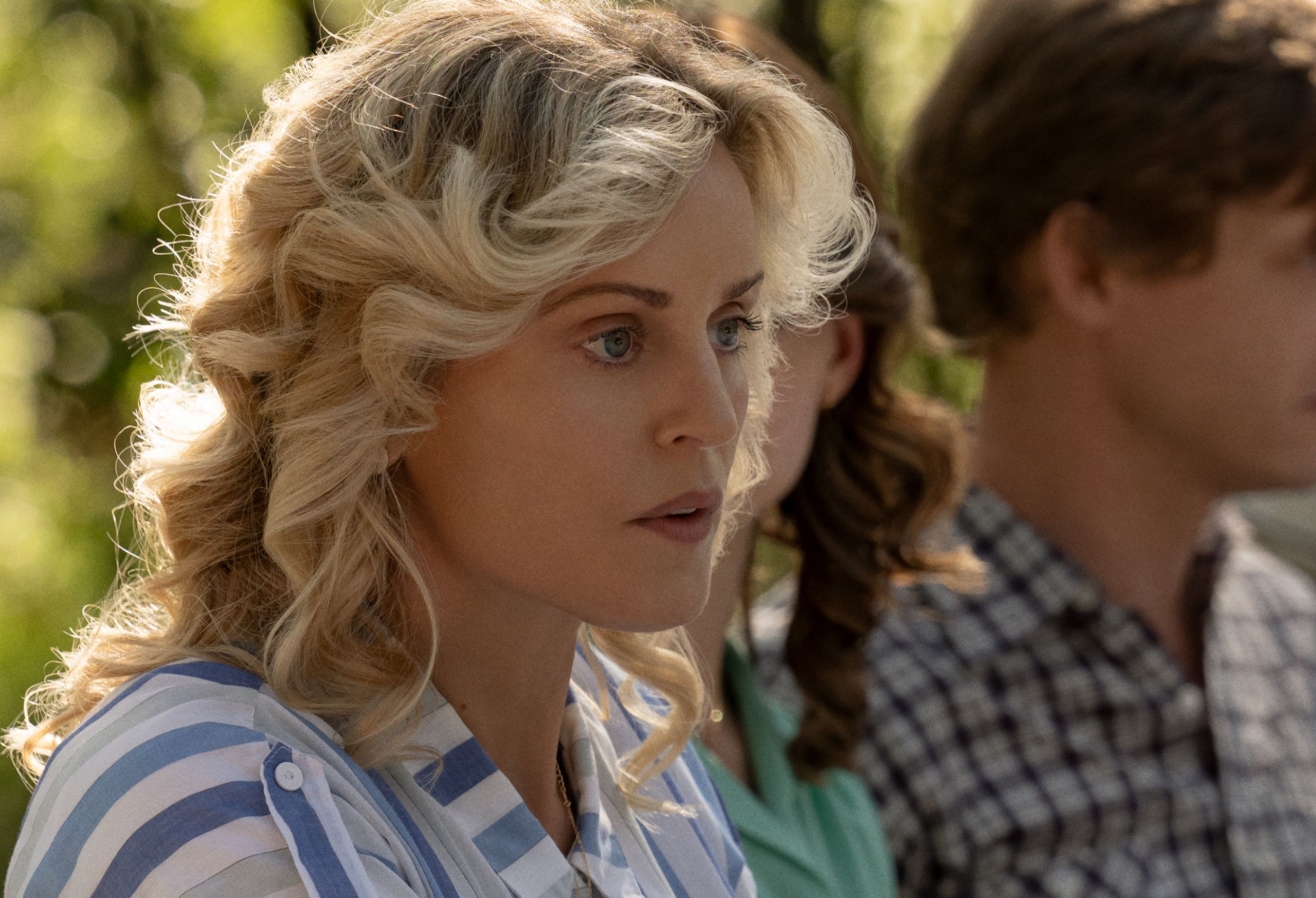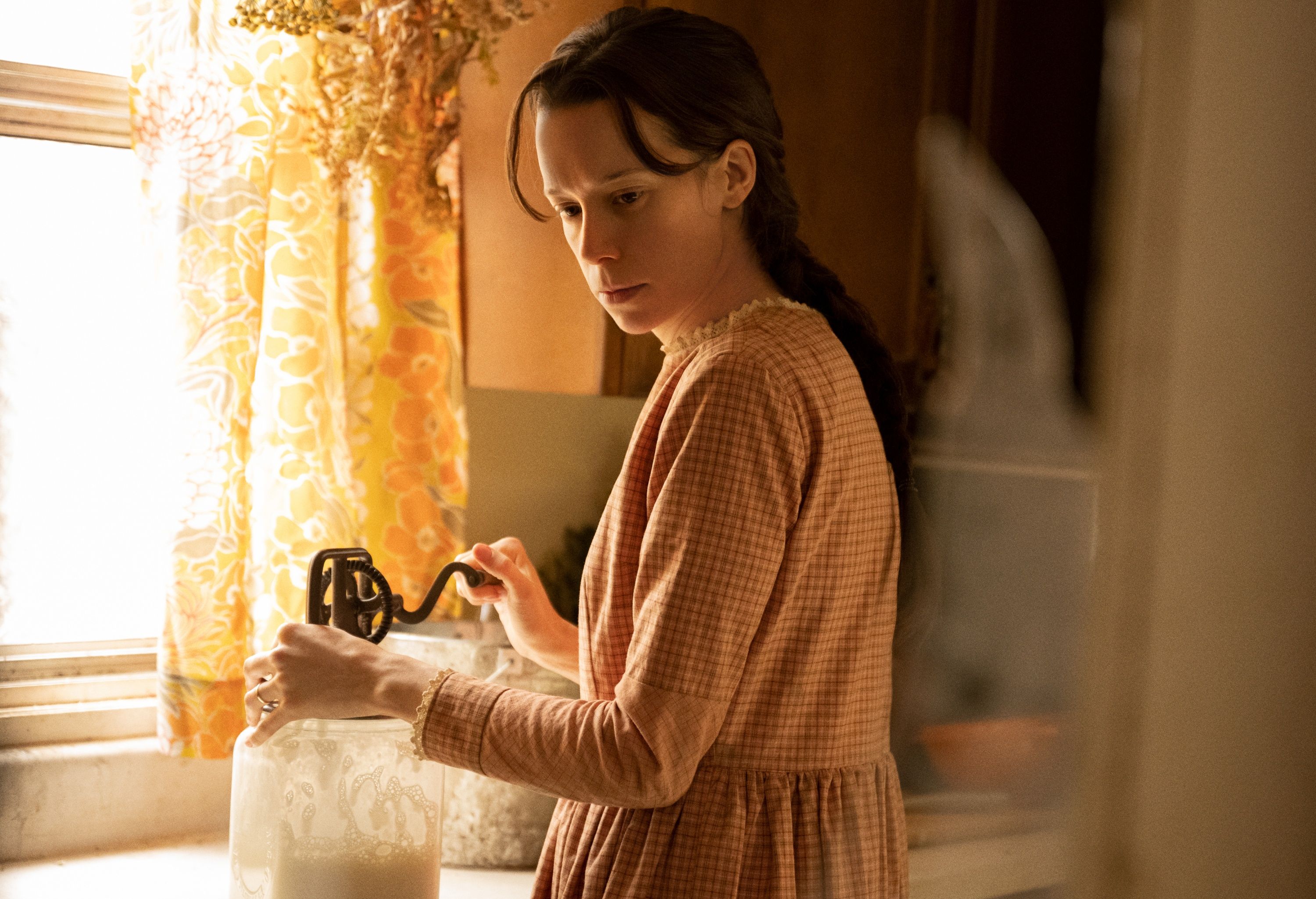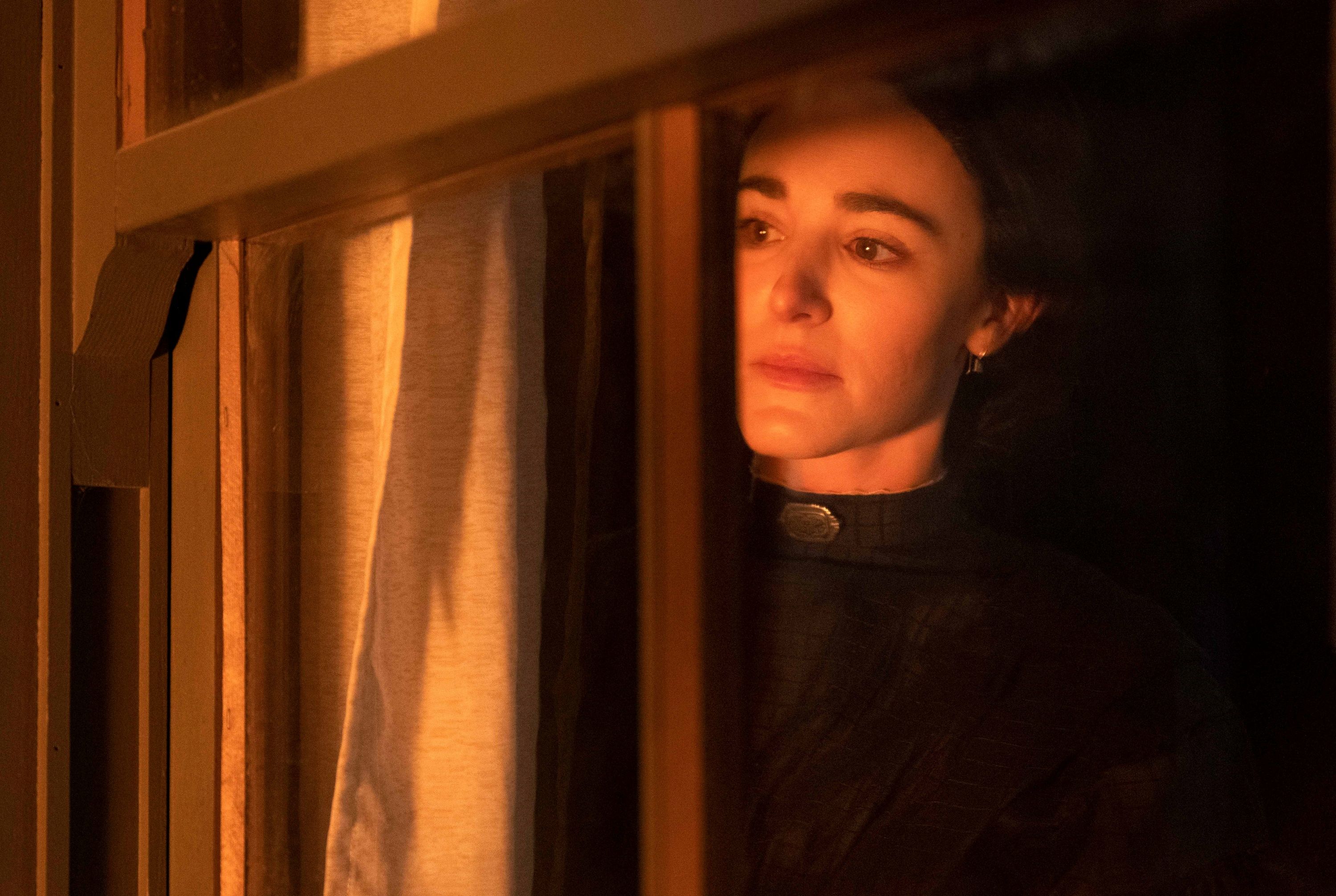Editor’s note: The following contains spoilers for the real-life crime explored in Under the Banner of Heaven.
With award conversations in full swing and the Best TV Shows of the Year (So Far) being discussed at the halfway point of 2022, one of the shows that most stood out for me and that I’m still thinking about since watching it is the FX series Under the Banner of Heaven (streaming on Hulu). The story unfolds as Detective Jeb Pyre (Andrew Garfield), a devout member of The Church of Jesus Christ of Latter-day Saints (or the LDS Church), and his seasoned partner Bill Taba (Gil Birmingham) investigate a prominent Mormon family, the Laffertys, for the role they played in a horrific crime while also forcing Pyre to question his own faith in ways that he never could have expected.
The series clearly comes from a very personal place for its creator Dustin Lance Black, who was inspired not only by the true-crime novel by Jon Krakauer but also by his own experience and journey with the Mormon faith. With flashbacks delving into the origins of the LDS religion, along with the exploration of the violent consequences of unyielding faith, the seven episodes of Under the Banner of Heaven are unsettling, heartbreaking, and handled with care and compassion by all involved.
During this 1-on-1 interview with Collider, Black talked about working on this project for a span of more than 10 years, the evolution from film to miniseries and why that was necessary, what finally helped him crack the feeling that he wanted the project to have, weaving flashbacks into the story, choosing to approach the show's violence against women in a very specific way, the unique collaboration he established with Pearl Jam’s Jeff Ament as he composed the music, where he places the blame when it comes to this story, and how he’s going to need some time before he fully throws himself into another project.
COLLIDER: You worked on this project for about 10 years. Why did it take that much time to get to this point? Were working on it for that long? Was it a challenge to find a home for it? What took that span of time?
DUSTIN LANCE BLACK: It’s a bit of both and more. I started on it now, almost 11 years ago. The first challenge was just getting Jon Krakauer to trust me with the property, and that took a little bit of time. Once I succeeded there, we did find a home pretty quickly at Warner Bros., but it was a feature film. I spend what film executives think is an inordinate amount of time to research, but I did need more details. I needed to put more flesh on the bone of what was in the book. The book was very good, but it’s a work of journalism, and I needed more. But then, the feature scripts ended up being hundreds of pages long, which was far too long for a drama, particularly in this day and age. And they weren’t particularly good. I can look back and say that. Though every word of them is now in these scripts [for the TV series], it was missing some of the vital pieces that made the book compelling.
So, I kept trying and kept failing. I was failing myself, and I’m sure Warner Bros. wasn’t terrifically happy. It wasn’t cracking open what I felt needed to be cracked open, in the way that the book had for me, personally. And so, I did set it down for a couple of years. I did another miniseries. I wrote a book and play. I worked on marriage equality, got married, and had a kid. I filled the time, and in that time, miniseries became this legit form again, for dramas like this. I think it was Brian Grazer who called me up and said, “Hey, would you be willing to dive back in, if we could set it up in a way that you had more hours?” And I said, “Yes, absolutely.” This one is very personal to me. In fact, a few years ago, when Brian called me up and proposed that, I realized that what’s at the core of this case in this show, which is these brothers stepping back into fundamentalism, both legal and religious, had only become more topical and more urgent, as we watched the world doing that, as we watched the United States doing that, and as we watched the Supreme Court doing that. I thought, “Yeah, we, we really have to do this now.” This is now not just an investigative thriller. This is also instructive and a cautionary tale.
I understood something then, that I might not have 10 years ago, which was the urgency of now with this show. That helped me with motivation and that helped me get going again. Then, I had the room for the Lafferty story, and I had the room for the Mormon history that helps you understand the Lafferty story. I also had room to do something that I hadn’t in the features, and hadn’t really considered in the features, which was to create something that would fill the space in the book that Jon Krakauer filled.
When you’re reading the book, I think the experience others had was of walking side by side with him, as an investigator into this. For me, I grew up in this world, but for other people, it’s a very foreign world. We needed to create the investigation. It needed to feel investigative. It needed to feel active. Hopefully, we took what otherwise might just feel instructive and gave it a heartbeat. You could feel the blood pumping. It could feel like it was a true-crime thriller. That took some invention. While one of the real investigators was quite helpful, he also did not want to be depicted in a way that mean he had to revisit this in the public eye, so I honored that and created Jebediah Pyre and Bill Taba, as eyes that the audience members could enter this world through.
And then, that design, being an investigator who’s Mormon, devout but had been unquestioning, which is probably most, and that’s what most of my family is still, and for those who are completely outside of the faith, to enter it through Bill Taba, who though he is not Mormon, his family and his foremothers and forefathers are from this area and lived in this area before Brigham Young came over those hills, were two compelling people to investigate this true crime. Hopefully, if done right and done well, the viewer would have that experience I had and others have had, reading the book. That took another handful of years. COVID slowed everybody down. One of those years was not development, so much as waiting. It found homes quite easily, I just was never happy with it and it didn’t do what I felt it needed to do, as a feature. I had to wait for this moment where limited series' are embraced again, which has been great.
One of the things that really so thoroughly impressed me about this show is the way that the story is told and the way that you’ve intertwined everything, weaving the past into the present of the story. Were there challenges in writing this? What was your guide for not overcomplicating or oversimplifying the religious aspect of it?
BLACK: It was a huge challenge. I had to build myself a box, a cage, a cell. Because Mormon history is so fascinating, I think, and you’re not getting most of it in this show, I had to set parameters for myself so that I could be creative if that makes sense. It’s hard to fly if you’re not tethered. Like a kite, you have to be tethered to the ground to fly. And so, my rule was to only illuminate, share, and illustrate the history that was pertinent to understanding this case. Though [I was] tempted a hundred thousand times to tell more, and I wasted a lot of time writing scenes that I would never use because they were fascinating to me, I felt it was critical to use LDS history as clues to solving this murder investigation.
What was helpful was that these brothers were stepping into the biblical Old Testament, New Testament, and Mormon fundamentalism, and following the rules of the original founders of the faith. It meant that, thankfully, I got to depict and needed to depict the founding of the faith, from the beginning, when it was two lovestruck teenagers with vivid imaginations, all the way to a place where decisions were made that it was okay to shed blood in the name of God, to protect this thing. It’s a heck of a journey. It takes us through three prophets and it sets the stage for this notion of one mighty and strong who would come back to set the church in order. That’s an incredibly dangerous thing to say to young men in a patriarchal faith because what that means is that all these young men are going to want to be that and try to be that. Unfortunately, that’s what these brothers convinced themselves they were.
You get to watch the pieces of history that take you on that journey from love to bloodshed. I tried very hard not to tell one more piece of this incredibly fascinating history, so if people are compelled by the show, they should read the book and they should read more. There are some wonderful books out there on the creation of this most American faith, that I would suggest people read. The hardest thing to do is to say what you want to say, in less time and with less words.
Throughout watching this, I felt a sense of dread for the moment when we’d eventually see what happened to Brenda and her daughter. How did you decide the way you were going to approach that, especially knowing that this is a real thing that happened and that it involved real people with real families? What made you decide to depict it the way you did and to hold it until the last episode?
BLACK: Even in the last episode, I made a decision not to show her being killed. I think that would be a violation, to depict a woman being slaughtered by men in the name of God, in this patriarchal faith. To depict that would have felt like a betrayal to Brenda and a betrayal to women. I don’t wanna give that moment any more power. That was validated when I met with Dan in prison, and I could see and hear the joy, as he stepped closer and closer to talking about what he did to her in that house.
Thankfully, I had the book, at that point, so I was able to stop him and say, “Is there anything that Jon wrote in the book that’s not true when it comes to the events of the murder? Is there anything that’s not true in the trial transcripts?” He said, “No, no, no, it’s all accurate. That’s what happened.” So, I was able to say, “Then, I don’t wanna hear it. I don’t need to hear it.” I think for far too many men, violence against women excites them, and I did not want to excite men like that, in this show. I don’t wanna continue that tradition. Sadly, I think it’s all over film and television. This show contains violence against women, but as you watch it, I think you’ll see that I’ve made some decisions, after speaking with women, like executive producer Anna Culp and writer/co-executive producer Gina Welch, that were really helpful. We all just agreed that we would not show that and we did not need to show that. If a man says they missed that, then that man needs to search his own soul. So, that’s how we came to it.
I thought the way you book-ended the series, starting with the crime scene in the first episode and then having the murder in the last episode, was so fascinating because it really haunts the entire series.
BLACK: Those were all decisions, and they were considered, so I’m glad you noticed that. We enter it through an investigator, which unfortunately has to be a man in Utah because, at that time and still today, women are discouraged from having jobs. These investigators and officers were men. So, we enter this story through this devout Mormon man’s eyes, and it’s already happened and we’re seeing the aftermath and he has to try to put it together, which he does. We do see some of what happened in that house, in the final episode, but even when I was watching that final episode, the first cut of it, was so hard to watch that I said to the editor, “When you come back to the investigator, having just heard that and confirmed what happened, can we just sit on that shot in silence for a while? I’m gonna need a moment to catch my breath and heal.” It’s true and it was done in the name of God, and it does rip your heart up.
I appreciated how much you feel what happened, as opposed to having to see it.
BLACK: Good. Most of Brenda’s dialogue is based on what I was able to read in her journals and in her letters. She was a big letter writer. And I learned from her family members. She was made of steel. It’s sad that I have to say that having curiosity, as a woman in this faith and in this time, meant you had to be made of steel. If you were gonna question the status quo and if you were gonna challenge men, you had to be made of steel. She was, and she did all those things. So, I wanted to be true to her, and what she said and did, in those final moments. She’s not a victim. She refused to be a victim, even in her final moments. She believed these men would be held to account. I hope that’s also clear, in how it ends. I’ll admit, some of what she says, in the end, were things that I pressed Dan Lafferty very hard in prison to admit she said. It’s hard and it makes me emotional, but he admitted her strength, in those final moments. I hope we honor that. I know Daisy did her best to honor that, in that scene.
The work all the women did in this is just so beautifully done.
BLACK: Chloe Pirrie is unbelievable. I think she’s just an extraordinary actress. And Denise Gough. Yes, Andrew Garfield, as Jeb Pyre, and Gill Birmingham, as Bill Taba, are the center of the investigative story, but if you’re talking about who’s at the center of the Lafferty story, this is no slight to Sam Worthington or Wyatt Russell, I hope people feel it’s Daisy Edgar-Jones and Chloe Pirrie and Denise Gough. They were strong and fantastic. At least in the first five episodes, I hope who people are connecting with most is Tyner [Rushing], who plays Emma Smith. That’s the way in. I loved them, and it was fantastic to work with them. They were so dedicated, whether it was Tyner researching Emma, or Chloe and Daisy, trying to find out as much as they could about the real people, to anchor it in truth. It’s not always like that, so it was a real honor to work with them.
This story is haunting, the imagery is haunting, and the music is quite haunting. What was it like to work and collaborate with Jeff Ament (of Pearl Jam) on this?
BLACK: First of all, I was in college in the early nineties, so the idea that I would ever get to work with Pearl Jam, was unbelievable. I definitely geeked out in the early meetings. Now I know Jeff, so I can admit it, but I was pinching myself. You very quickly have to move from fanboy to showrunner, and what he was pitching to me was that he was gonna go away and experiment with some of the best musicians in the world, with sound and texture, and he wanted me to send him footage. We were rolling cameras and I was sending him footage. Some of it was cut, but some of it was not, and he was jamming to it and creating these textures that were haunting and terrifying, so they had the right tone. It all feels bolted to the earth. It feels earthy and it feels real. He didn’t take us to some other planet or world. He took us deeper into the subconscious, and that’s what we needed to do. This show lives inside of Investigator Pyre’s head, so you need to feel like you’re inside someone’s mind, as they’re envisaging these things.
And so, when these early experiments were coming back, he would send me these long cues. I had this little trailer and, in between setups, I would go put on headphones and listen to it. It was so inspiring, and it helped me stay on the tone, as well. I would be able to walk back out of the trailer, really in the vibe of the show. It was like I had a dance partner while in production because Jeff was experimenting as we rolled cameras. That’s not how it usually works. Usually, you do a cut, you send it to a composer, they send it back, and you give notes. This was much more collaborative, which meant, that by the time we had cuts, he was not just working on textures and tone, but he was working on themes, and on how much he wanted to hit moments and how much he wanted to avoid them.
He’s a true artist, in that way. It’s wonderful to work with someone who’s that creative and has that kind of creative confidence. He didn’t stop playing and experimenting until everything was complete and mixed. I’ve had experience with Danny Elfman. He’s like that, as well. But this was quite extraordinary for someone who hadn’t really done it before. Sorry that I’m gushing, but it was everything and more than I hoped it would be. We were both taking a chance on each other. He’d never worked with me. I’d never worked with him. And this was a big project that meant a lot to me.
The music really just felt so emotionally woven into the story, but never overpowered it.
BLACK: One of the things I said to him was, “It can’t feel dusty. Yes, we’re talking about things that happened in the past, some of it 200 years ago and some of it 40 years ago, but it needs to feel very present tense because that’s why we’re doing it. We’re not doing it out of nostalgia. We’re doing it because it feels urgent.” And I said, “Don’t worry, I don’t need you to pick up a banjo when we go back to the 19th century. Don’t be afraid to let it rock. Don’t be afraid to pick up your guitar. You’re allowed to break some rules here, in the service of helping it feel immediate and helping the blood pump.” If there’s a viewer who doesn’t like that and doesn’t get it, then they’re not our audience.
When you look at this story, where do you place the blame? Is it the distortion of faith? Is it solely these men and the choices that they made? Is it a combination of things? Is there even any way to answer a question like that?
BLACK: Yes, I think there is. If you build a strict patriarchal structure that claims God sits at the very top of that structure, that’s saying loud and clear, to all of the members, men and women, little boys and little girls, that misogyny is okay. And not only that but we’re supposed to pray fervently to this God who believes that men are superior to women. You’re teaching young boys and young girls, at a very early age, to pray to a God who doesn’t believe in the equality of genders and who believes women are inferior. If you teach little boys that at an early age, are they gonna treat women well? Absolutely not. And are women gonna feel like they can achieve their dreams and that they’re equally capable? Sadly, probably not. It’s soul-crushing.
So, there is an answer, and the answer is that, if you step back towards fundamentalist texts, you are following rules written by men, exclusively, in a time when we did not know better and in a time when they might have thought they were doing the very best, but they were hurting a lot of people, based on the color of their skin, who they love, and what their gender is. These are outdated, dusty, dangerous documents if taken literally today. So, it’s the fault of unquestioned patriarchy. It’s the fault of having a love affair with the past, instead of moving forward. It’s about men holding on desperately to the power they’ve given themselves throughout history, and not understanding [that] we know better now.
It’s our responsibility to do better now. I hope people get that, from this show. It’s high time we stop teaching our children to pray to a misogynist God and that we start to really question these patriarchal structures that go beyond just Mormonism. It’s in almost every faith there is. It’s woven into the fabric of even the United States Constitution. And so, when you hear the Supreme Court saying, “We’re going back to originalist interpretations,” I think people should get out in the streets and say, “No, we’re not. We know better now. We must do better now.” I hope this show is a cautionary tale about what happens if you follow those dusty, outdated rules.
How do you then move on from that, when you’re still clearly working it out for yourself? How do you get your head in a space where you find the next project to do?
BLACK: It’s a really good question in this home right now. It’s been hard. A lot of people have been challenged by the show, and I hear that and have seen it. We screened it in Salt Lake City, and I saw the tears in people’s eyes. People had to step out of the theater for a few minutes, just to catch their breath, and then step back in. I feel the same. I’ve felt the same for 10 years, as I’ve done the research. There are parts of me that are broken because of the show, because of what I’ve learned, because of what I’ve had to ask, because of having to fight some of the pushback that’s come from people who are still very religious or in this faith. It’s hard. I don’t think I just move on. I think it’s gonna take time to put myself back together, but good. Isn’t that what we’re supposed to do? If it was easy, I’d probably make a lot more money and it wouldn’t take as long. This has not been an easy one. This has been challenging. I think it’s gonna take a little time to heal and I might not make something that comes out next year, but that’s okay. I don’t do that anyway. I take my time.
If you make a musical rom-com next, I would totally understand why.
BLACK: The funny thing is, I am currently writing a musical that I’ve had to put aside for a little bit. But it’s not a musical rom-com. Music might be healing. We’ll see. I have to feel like we’re breaking something open that needs to be broken, or else I’d rather just stay in bed. That’s just how I’m built. I think I get it from my mom. My mom was curious, and my mom didn’t take shit from anybody. She was convinced that the world was not in its perfect state yet and there are things that need to be broken and put back together better. I learned from that paralyzed, single mother of three that we’ve got some work to do.
Under the Banner of Heaven is available to stream on Hulu.

